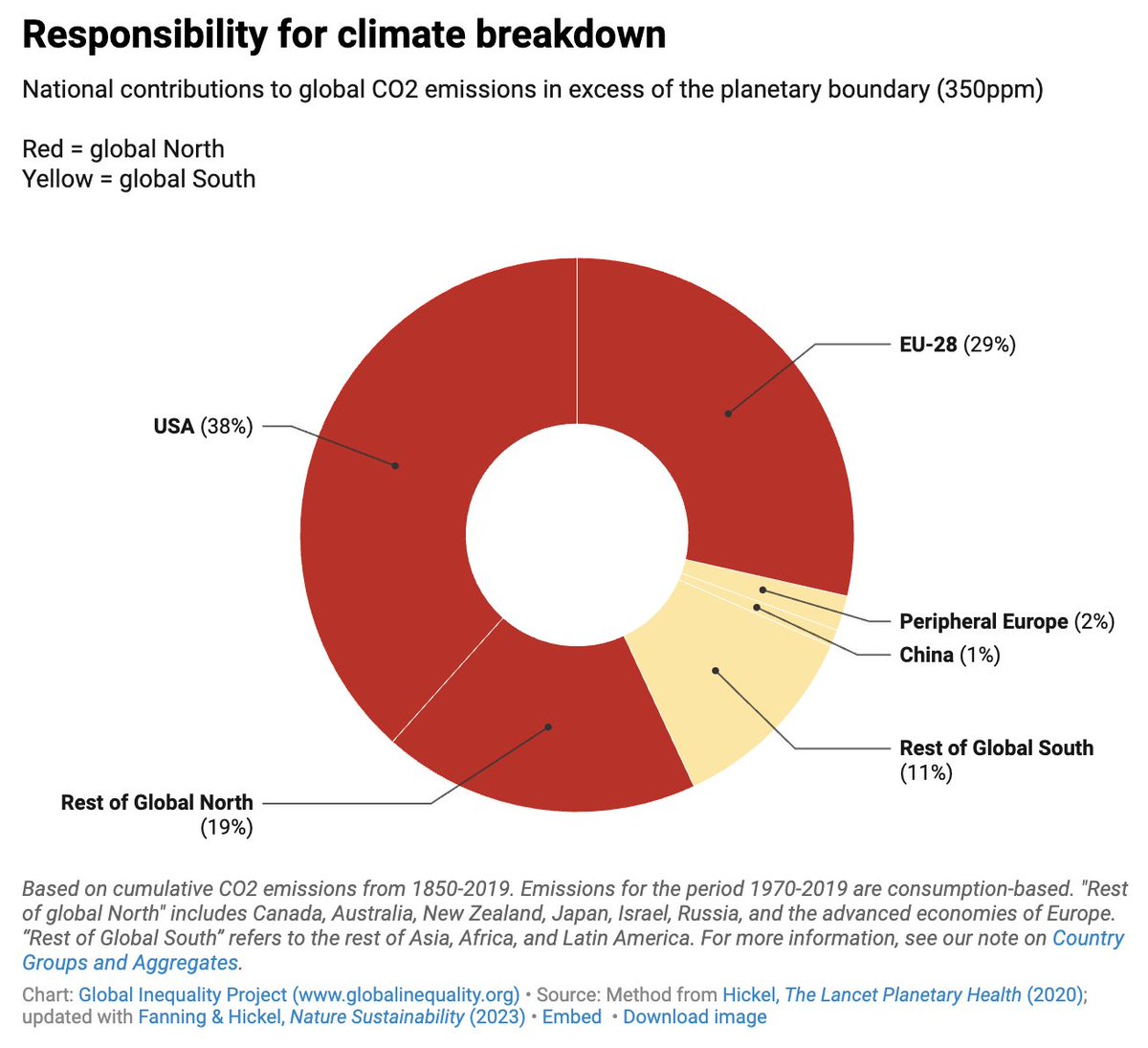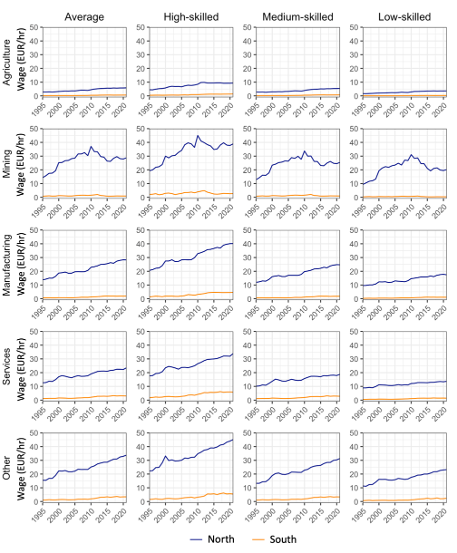
Professor at ICTA-UAB and Visiting Senior Fellow at LSE • Author of THE DIVIDE and LESS IS MORE • Global inequality, political economy and ecological economics
65 subscribers
How to get URL link on X (Twitter) App


 2. This chart uses the same data.
2. This chart uses the same data. 



 Here's the paper: thelancet.com/journals/lanpl…
Here's the paper: thelancet.com/journals/lanpl…
 It includes 14 topics and more than 100 interactive graphs, drawing on recent research published by our team and others, including on unequal exchange, gender, climate, military power, financial flows...
It includes 14 topics and more than 100 interactive graphs, drawing on recent research published by our team and others, including on unequal exchange, gender, climate, military power, financial flows... 


 And this is not due to sectoral differences. It is occurring across all sectors, even as the global South's share of industrial manufacturing and high-skilled labour in the world economy has increased dramatically over this very period.
And this is not due to sectoral differences. It is occurring across all sectors, even as the global South's share of industrial manufacturing and high-skilled labour in the world economy has increased dramatically over this very period. 


 The claim is that ecological collapse will undermine industrial production, so we should not pursue development to meet needs in the South.
The claim is that ecological collapse will undermine industrial production, so we should not pursue development to meet needs in the South.


 First, a crucial point. Workers in the global South contribute 90% of the labour that powers the world economy, and 91% of labour for international trade.
First, a crucial point. Workers in the global South contribute 90% of the labour that powers the world economy, and 91% of labour for international trade. 

 Some narratives hold that ending poverty and achieving good lives for all will require every country to reach the GDP/cap of high-income countries. But this would have severe ecological consequences. It forces a brutal dilemma between poverty reduction and ecological stability.
Some narratives hold that ending poverty and achieving good lives for all will require every country to reach the GDP/cap of high-income countries. But this would have severe ecological consequences. It forces a brutal dilemma between poverty reduction and ecological stability.